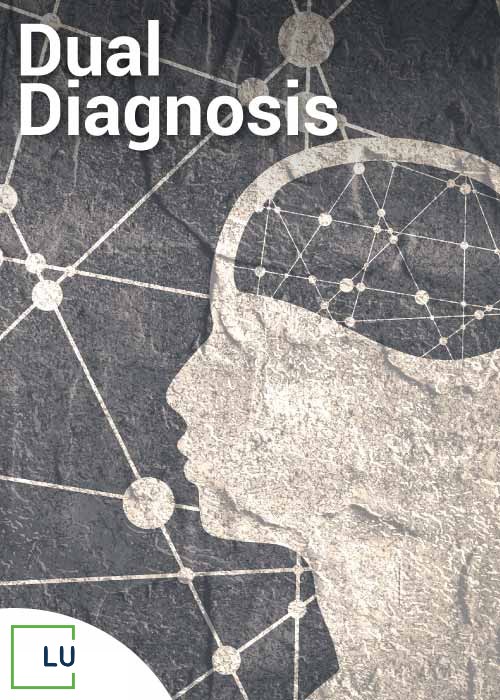How Does Alcohol Affect ADHD?
About 1/3 of the time, ADHD and alcohol may affect adults. Some research suggests that children with ADHD may be more susceptible than the general population to experiencing issues with alcohol and other substances as they age. Study shows potential correlations between alcohol usage and attention deficit hyperactivity disorder (ADHD). Alcohol consumption may be heavier or begin earlier in people with ADHD.
Those with ADHD are more likely to develop an alcohol consumption disorder than those without the disease. Learn more about the effects of alcohol on persons with ADHD, how it interacts with prescriptions for the condition, and other risk factors by reading on.
What is ADHD?
One of the most prevalent teenage mental health illnesses is attention-deficit hyperactivity disorder (ADHD), with estimates of its incidence in adolescents ranging from 5 to 11%. Despite being mostly assumed to affect children, adults can also be diagnosed with ADHD.
Both children and adults are affected differently by this condition. Most people occasionally display some inattentive behavior, even those without ADHD. However, those with ADHD exhibit more severe inattention and impulsive behavior. Usually more frequent, the behavior makes it difficult for the person to carry out everyday tasks at home, school, work, and social environments.
Get Help. Get Better. Get Your Life Back.
Searching for Accredited Drug & Alcohol Rehab Centers Near You? Or Mental Health Support?
Even if you have failed previously, relapsed, or are in a difficult crisis, we stand ready to support you. Our trusted behavioral health specialists will not give up on you. Call us when you feel ready or want someone to speak to about therapy alternatives to change your life. Even if we cannot assist you, we will lead you wherever you can get support. There is no obligation. Call our hotline today.
FREE Addiction Hotline – Call 24/7ADHD Statistics
According to research by mental health statistics, 1 in every 4 individuals suffers from mental health once in their lifetime. Dual diagnosis means having a mental health disorder simultaneously with a substance and alcohol abuse problem. When patients present with symptoms of an addiction problem and a mental health disorder, they live with a Dual Diagnosis.
37%
37% of alcohol abusers also have at least one serious mental illness, including ADHD.
Source: NIDA
42%
ADHD is five to 10 times more common among adult alcoholics than people without the condition.
Source: NIDA
Risk Factors for Alcohol and ADHD
Even though ADHD and alcohol have no direct interactions, alcohol has long been identified as a risk factor.
Risk factors for alcoholism and ADHD may include:
- Previous alcohol use – Early alcohol use and regular or intense alcohol use were linked to more severe childhood ADHD.
- Increased risk of heavy drinking – Early-life binge drinking is also more prevalent among those with ADHD.
- More sensitive to the effects of ADHD and alcohol – Even when asked to do tasks that generally lessen impairment, persons with ADHD alcohol sensitivity were likelier to display symptoms of alcohol impairment.
- More significant amounts of ADHD and alcohol symptoms – The impaired judgment brought on by alcohol may worsen ADHD symptoms like impulsivity and difficulty focusing. Long-term alcohol consumption is also linked to speech, memory, decision-making, and cognition issues. These outcomes might worsen ADHD symptoms.
- Alcohol use disorder risk is increased – A substantial risk factor for the emergence of alcohol consumption disorder in childhood ADHD.


Get Your Life Back
Find Hope & Recovery. Get Safe Comfortable Detox, Addiction Rehab & Mental Health Dual Diagnosis High-Quality Care at the We Level Up Treatment Centers Network.
Hotline (877) 378-4154ADHD Medication and Alcohol
Can ADHD meds and alcohol interfere with one another? Depending on your medication, alcohol and ADHD meds may not be ideal. When suffering from ADHD alcohol dopamine levels are low. Dopamine levels typically rise in response to stimulant substances like caffeine or amphetamines. Most of the time, increasing stimulants will raise dopamine levels excessively, resulting in agitation and anxiety. However, adding stimulants can help persons with ADHD achieve the ideal levels.
Stimulants
Ritalin and Adderall are two of the most often given medications for ADHD. Their mechanism of action involves raising the nervous system’s activity. Alcohol, on the other hand, causes the nervous system to function less.
Alcohol alters how your body absorbs the stimulant instead of masking its effects. Increased adverse effects could include:
- Rapid heartbeat
- High blood pressure
- Difficulty sleeping
You run a higher risk of alcohol poisoning and overdose if you use both substances. Both medications have the potential to wear down your heart over time, raising your risk of heart attack and stroke.
Non stimulants
A non-stimulant drug for ADHD is Atomoxetine (Strattera). Although it’s much less common, intake of alcohol with ADHD medication can lead to unpredictable side effects. So far, the only reported side effect among heavy drinkers using Atomoxetine for ADHD was nausea. However, taking both substances at the same time is still not recommended.
Additionally, the effects of alcohol on your body when taking ADHD medication depend on various factors. The dosage and whether your medication is long-acting or short-acting are a few factors. You should avoid alcohol use while taking ADHD medication, especially heavy drinking. It might be acceptable to indulge in a drink sometimes. If you are worried about how drinking might affect your ADHD medication, you should speak to your doctor.
Comfortable Facilities & Amenities
High-Quality Addiction & Mental Health Rehabilitation Treatment
Rehab Centers TourRenowned Addiction Centers. Serene Private Facilities. Inpatient rehab programs vary.
Addiction Helpline (877) 378-4154Proven recovery success experience, backed by a Team w/ History of:
15+
Years of Unified Experience
100s
5-Star Reviews Across Our Centers
10K
Recovery Success Stories Across Our Network
- Low Patient to Therapist Ratio
- Onsite Medical Detox Center
- Comprehensive Dual-Diagnosis Treatment
- Complimentary Family & Alumni Programs
- Coaching, Recovery & Personal Development Events

Alcoholism and ADHD Symptoms
ADHD may be present when someone struggles to concentrate on one task, cannot sit still, is constantly engaged in something, or rarely completes things they start. Other external influences, such as alcohol or other substances, which a drink might bring on, can also contribute to losing focus. The person should be examined for ADHD and alcoholism if they suffer symptoms that interfere with their regular lives.
You should discuss your alcohol and drug use with your doctor if you have ADHD. Your doctor can advise you on options that will lessen your likelihood of abusing alcohol.
Additionally, if you or a loved one exhibits any of the following signs of substance misuse, you should seek medical attention:
- Strong cravings for alcohol
- A desire to take alcohol regularly
- Increased tolerance to alcohol’s effects
- Keeping a supply of alcohol on hand at all times
- Spending a lot of time and money on drinks
- Avoiding responsibilities or social activities
- Drinking, despite the problems it causes
- Experiencing withdrawal symptoms when you stop drinking
World-class, Accredited, 5-Star Reviewed, Effective Addiction & Mental Health Programs. Complete Behavioral Health Inpatient Rehab, Detox plus Co-occuring Disorders Therapy.
CALL (877) 378-4154End the Addiction Pain. End the Emotional Rollercoaster. Get Your Life Back. Start Drug, Alcohol & Dual Diagnosis Mental Health Treatment Now. Get Free No-obligation Guidance by Substance Abuse Specialists Who Understand Addiction & Mental Health Recovery & Know How to Help.
ADHD and Alcohol Abuse
People with ADHD and alcoholism may also use other substances, not just alcohol. According to certain studies, ADHD raises the likelihood of substance abuse, dependence, and use. This connection relates to typical ADHD symptoms like impulsivity, hyperactivity, and disturbed emotional regulation. All three signs contribute to substance use, making people with ADHD more susceptible to addiction.
Treatment for someone with ADHD and alcohol use disorder must address both issues. Typically, detoxification and becoming sober are necessary before doing this. To lower your risk of addiction, your doctor may recommend long-acting stimulants or non-stimulants for ADHD.
Experience Transformative Recovery at the We Level Up Treatment Center.
See our authentic success stories. Get inspired. Get the help you deserve.



Start a New Life
Begin with a free call to an addiction & behavioral health treatment advisor. Learn more about our dual-diagnosis programs. The We Level Up treatment center network delivers various recovery programs at each treatment facility. Call to learn more.
- Personalized Care
- Caring Accountable Staff
- Comfortable Amenities
- Licensed & Accredited
- Renowned w/ 5-Star Reviews
We’ll Call You
ADHD Alcoholism Treatment
We Level Up NJ offers a comprehensive treatment program, including evidence-based and cognitive behavioral therapy for people suffering from ADHD and alcoholism. Depending on how severely their alcohol addiction has affected them, certain people with drug use disorders may be eligible for treatment at a specialized institution like ours.
We partner with highly qualified addiction specialists to provide clients with the guidance and support they need to give up drinking and maintain their long-term health and sobriety. We provide dual-diagnosis treatment programs for those suffering from these diseases and co-occurring mental health conditions.
If you are suffering from alcohol addiction, contact us to discuss your treatment options and learn how we can support you as you start your recovery. We will be there for you at every step. With the help of our program for medically assisted detox, We Level Up NJ offers correct therapy and 24-hour medical staff to aid in your recovery. Call us immediately to speak with a treatment expert and regain your life. Our counselors will address your worries because they are aware of your circumstances.

Popular ADHD and Alcohol FAQs
Can ADHD cause alcoholism?
Attention deficit hyperactivity disorder (ADHD) is a childhood mental health disorder that can lead to alcohol ADHD and other substance-related problems if it persists into adolescence and adulthood.
Does alcohol make ADHD worse?
Alcohol can worsen symptoms of ADHD, such as impulsiveness and difficulty focusing. In addition, long-term alcohol use is associated with problems with cognition, decision-making, memory, and speech. These effects could worsen symptoms of ADHD. Increased risk of alcohol use disorder.
Does alcohol help ADHD?
Addiction to alcohol and ADHD are very commonly found together in the same individual. Unfortunately, alcoholism tends to make ADHD symptoms worse, and vice versa.
“ADHD alcohol helps focus,” is it true?
Unfortunately, alcohol impairment may worsen ADHD symptoms like impulsivity and difficulty focusing.
Is “alcohol makes me sleepy ADHD” true?
Alcohol is a depressant. That is why many people use it to relax. In the case of people afflicted with ADHD, many will use alcohol to calm down the hyperactivity.
Can you drink alcohol while on ADHD medication?
No, drinking alcohol with certain medications like Adderall may worsen symptoms of ADHD.
Search ADHD and Alcohol Rehab / Detox & Mental Health Topics & Resources
Sources
- Smith BH, et al. (2002). The clinically meaningful link between alcohol use and attention deficit hyperactivity disorder.
pubs.niaaa.nih.gov/publications/arh26-2/122-129.pdf - Coppola M, et al. (2018). Impulsivity in alcohol-dependent patients with and without ADHD: The role of atomoxetine. DOI:
1080/02791072.2018.1471247 - Barkla XM, et al. (2015). Are there any potentially dangerous pharmacological effects of combining ADHD medication with alcohol and drugs of abuse? A systematic review of the literature. DOI:
10.1186/s12888-015-0657-9 - Groenman AP, et al. (2017). Childhood psychiatric disorders as a risk factor for subsequent substance abuse: A meta-analysis. DOI:
10.1016/j.jaac.2017.05.004 - Wang FL, et al. (2019). Role of ADHD in the co-occurrence between heavy alcohol use and depression trajectories in adulthood.
ncbi.nlm.nih.gov/pubmed/30537147 - Weafer J, et al. (2009). Increased sensitivity to the disinhibiting effects of alcohol in adults with ADHD. DOI:
1037/a0015418